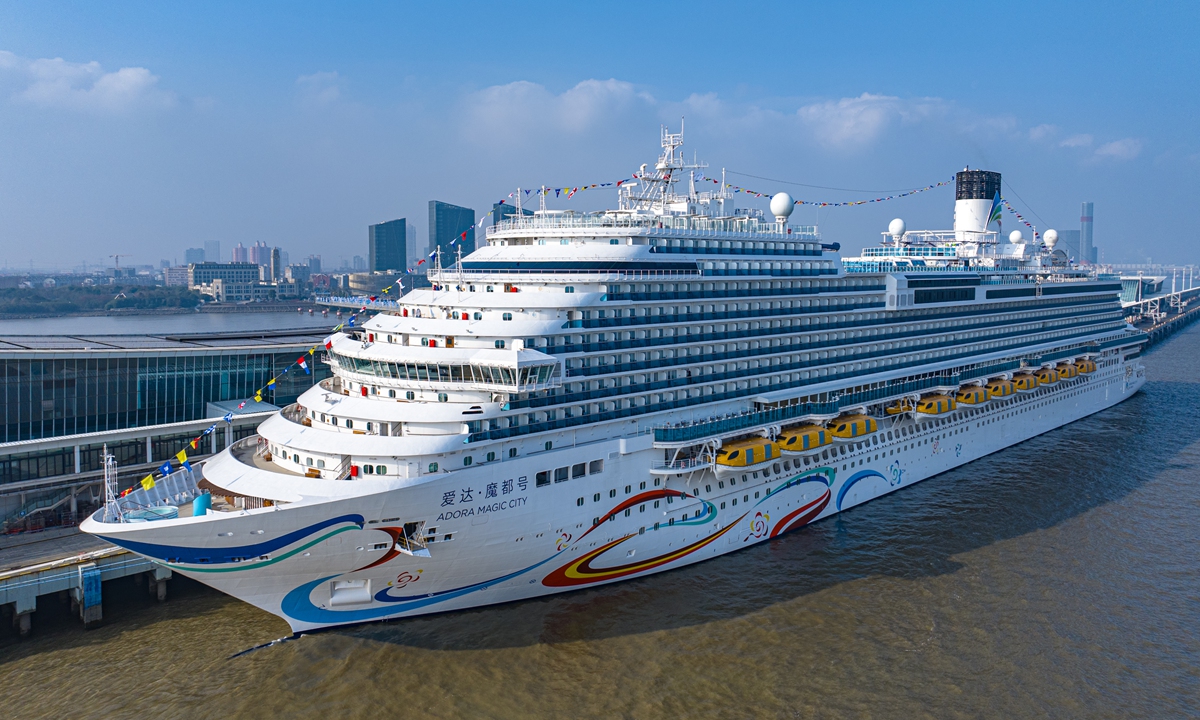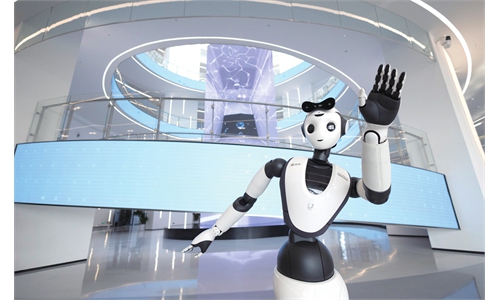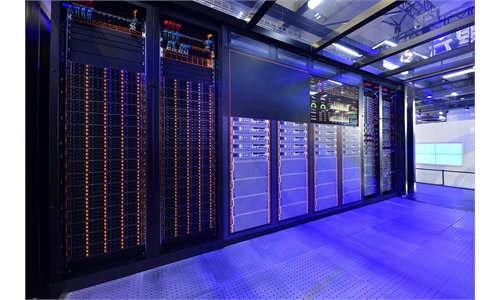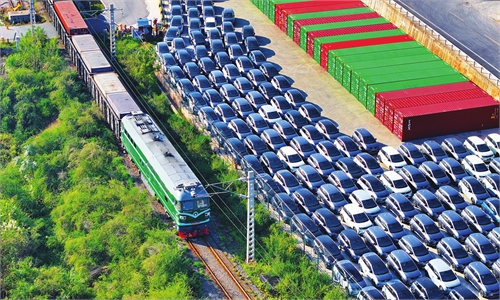
China's first domestically made large cruise ship Adora Magic City starts first commercial voyage from Wusongkou International Cruise Terminal in Shanghai on January 1, 2024. Photo: VCG
Chinese centrally administered state-owned enterprises (SOEs) set up a marine engineering innovation consortium on Monday, aiming to foster scientific breakthroughs and break technological bottlenecks constraining the development of the fast-growing marine industry, which plays a key role in China's harnessing of its marine resources.
The multi-stakeholder consortium was jointly set up by 10 central SOEs, 14 universities, and a number of institutions and private companies. Infrastructure giant China Communications Construction Co (CCCC) was assigned by the State-owned Assets Supervision and Administration Commission (SASAC) to set up the platform.
Wang Tongzhou, chairman of CCCC, said at the inauguration ceremony that marine engineering technologies are the key pillars in supporting efforts to build the country into a strong marine power. Wang identified a number of initial objectives such as mastering technologies for key equipment for large-scale offshore wind farms.
Officials with the SASAC, the Ministry of Science and Technology, and the Ministry of Industry and Information Technology said the move is aligned with the national strategy to make enterprises the leading force in fostering sci-tech innovation.
Marine engineering is an interdisciplinary subject featuring the integration of sci-tech innovation, industrial innovation and high level of fusion of industry-university research cooperation, officials noted.
"The setting up of the consortium will make research and development (R&D) more open and broader and allow central SOEs to transcend peer-to-peer competition that thwarts R&D efficiency, bridging information gaps and pooling resources together," an industry insider attending the event told the Global Times on Monday on condition of anonymity.
In recent years, China's marine equipment industry has made notable progress with a series of signature products such as the first domestically built large cruise ship Adora Magic City, Asia's largest dredging vessel Tian Kun Hao, offshore oil rigs, sea-crossing bridges and tunnels, being rolled out.
However, experts attending the event noted that China is a latecomer in harnessing its marine resources while the global marine sci-tech R&D effort has been led by Western countries. Many of the key technologies in marine engineering, such as offshore drilling, have been controlled by companies from developed countries.
Experts noted that marine engineering is a fast-growing sector within China's marine industry, and has the potential to be a new quality productive force due to its role in driving growth in downstream and related sectors.
China's marine economy accounted for about 8 percent of its GDP during the 14th Five-Year Plan (2021-25) period. In 2023, the economic aggregate of China's marine industry reached 9.9 trillion yuan ($1.39 trillion), playing a key role in stabilizing economic growth.
Prompted by the SASAC to beef up innovation-driven growth and core competitiveness, the R&D expenditures of China's 97 central SOEs exceeded 1 trillion yuan in both 2022 and 2023.
As of June, the SASAC had designated 21 central SOEs to lead the setting up of 24 innovative consortiums in strategic and emerging industries and future industries.




